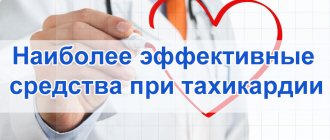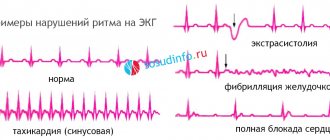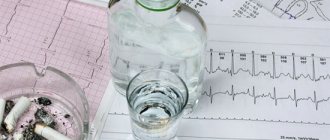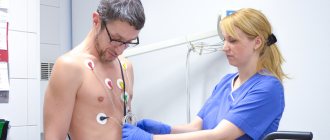Waking up with a racing heart can be quite frightening, but it is rarely a cause for concern. Factors that can cause heart palpitations in the morning include diet, stress, lack of sleep and arrhythmias, for example.
Sometimes, after waking up, you may feel like your heart is beating or pounding very quickly. At the same time, you may feel trembling and feel anxious.
Although frightening, it is usually related to everyday factors such as anxiety and diet, and is usually temporary. Diabetes, sleep disturbances, or anemia can also cause heart palpitations.
If you experience heart palpitations regularly, you should see a doctor who can determine and treat the cause.
In this article, we will look at the reasons for waking up with a racing heart, and also tell you when to see a doctor.
Stress and anxiety
Increased levels of anxiety and stress can cause the release of hormones into the blood that increase your heart rate.
Anxiety is a very common cause of rapid heartbeat. According to data published in the Journal of American Family Physician, about 31% of cases of palpitations are associated with mental factors, including stress, anxiety or internal conflict.
Rapid heartbeat in the morning sometimes occurs in people with a difficult lifestyle, as well as those suffering from anxiety disorders. This condition may be more pronounced during periods of high stress or with increased symptoms of anxiety disorders, although it can also sometimes occur unexpectedly.
People who are stressed or have anxiety disorders may also experience other symptoms:
- trouble falling or staying asleep
- constant worry
- problems with rest
- shortness of breath
- fast, shallow breathing
Tachycardia in the morning: causes, necessary diagnosis, treatment
Tachycardia in the morning is usually a concern with vegetative-vascular dystonia. This condition is characterized by an increase in heart rate immediately after waking up. The problem is more typical for people at a young age, which is associated with instability and immaturity of the nervous system.
Normal heart rate and signs of increased heart rate
Most patients determine increased heart rate by the following signs:
- the heart beats loudly and seems to be trying to jump out of the chest;
- noise and response of the heartbeat in the temples and back of the head;
- darkening of the eyes, a feeling of imminent loss of consciousness;
- twitching of the little finger on the left hand;
- a pinching sensation in the area where the heart is located.
With a normal heart rate, such sensations never occur. This pathology signals chronic diseases of the cardiovascular system, which are most often psychosomatic in nature (i.e. associated with anxiety, excitement, fear).
Nutrition
Diet can have a significant impact on the quality of your sleep, and certain types of food—especially if eaten at night—may increase your risk of waking up with a racing heart.
Sugar before bed
Eating sugary foods before bed can cause you to wake up with a racing heart.
The body metabolizes sugar easily, and eating sugary foods can cause your blood sugar levels to spike. This extra sugar in the blood can cause the release of stress hormones, which can cause symptoms similar to those of stress.
Caffeine
Consuming caffeine can also cause heart palpitations. Caffeine, a stimulant found in coffee, tea and soda, can cause heart palpitations.
The following symptoms will also be observed:
- fright
- nervousness
- anxiety
- trouble falling or staying asleep
Dehydration
Dehydration can also cause an irregular heartbeat. Mild dehydration can cause symptoms such as thirst, dry mouth, and decreased urine output.
If dehydration worsens, rapid heart rate, rapid breathing, and low blood pressure may occur.
Alcohol at night
Drinking large amounts of alcohol at night can cause heart palpitations in the morning.
Consuming alcohol increases your heart rate and the body may take some time to recover.
The following symptoms are also observed:
- extreme thirst
- nausea
- muscle pain
- headache
- fatigue
How to relieve an attack of tachycardia: first aid
Vagal tests can be used as an emergency aid. Their meaning is to irritate the receptors of the parasympathetic nervous system, as a result of which the vagus nerve is activated. Performing these techniques will help either interrupt the paroxysm or lower the heart rate and reduce symptoms.
- Valsalva maneuver. While sitting or standing, take a deep breath, then pinch your nose, close your mouth and try to exhale, while straining the anterior abdominal wall.
- The cough reflex is simple to perform: the patient needs to cough.
- The gag reflex is to press on the root of the tongue.
- Squatting with straining.
- Diving dog reflex: hold your breath, pinch your nose and lower your face into a container of cold water.
- Carotid sinus massage. Prohibited for patients with atherosclerotic lesions of the carotid arteries and/or a history of stroke. It is carried out as follows: the pulsation point on the neck is determined and several pressures are applied on it for 3-5 seconds.
- Danini-Aschner test - pressure on the eyeballs; currently not recommended for use.
In addition to vagal tests, medications are used for emergency care. Verapamil is widely used, but its use is possible only when it is reliably known that there are no additional pathways in the myocardium. If atrial fibrillation has developed, then Propafenone, the “pill in your pocket” technique, can help. This drug is taken only if it has been previously successfully used in a hospital under the control of an electrocardiogram.
In my practice, during transesophageal pacing, patients often developed an attack of reciprocal AV nodal tachycardia. The use of vagal maneuvers (Valsalva and carotid sinus massage) made it possible to stop paroxysm. The entire process is demonstrated on the screen of the ECG installation: against the background of a smooth sinus rhythm, an attack of tachycardia with narrow QRS complexes suddenly occurs.
If wide complex tachycardia develops during TEE, you can try to stop it using several electrical stimuli. The cessation of paroxysm in this way indicates the supraventricular nature of the arrhythmia. If the source is located in the ventricles of the heart, then stimulation will not affect the course of the attack in any way.
Nightmares
Nightmares can cause physical symptoms in the body and can cause a person to wake up with their heart pounding. They can also cause profuse sweating and shaking.
Nightmares can also cause feelings of panic. They are more common in children than in adults. However, you will not always remember the specific details of these nightmares.
Sleep paralysis can also lead to increased heart rate. In this case, the person cannot move after waking up. This usually causes intense feelings of fear and hallucinations, and may also cause chest tightness.
If nightmares are the cause, the rapid heart rate usually calms down soon after waking up.
Sleep apnea
Sleep apnea causes many sleep-related symptoms, including a rapid heartbeat upon waking.
Sleep apnea occurs when a person stops breathing repeatedly during the night. These sudden stops in breathing can reduce oxygen levels and place additional stress on the heart.
Other symptoms of sleep apnea include:
- very loud snoring, which can even wake a person up
- when waking up, a person gasps for air
- dry mouth upon waking
- the person does not feel well rested the next day
It is very important to treat sleep apnea, as the reduction in oxygen supply to the body in general and the brain in particular can lead to serious consequences over time. Sleep apnea can also contribute to atrial fibrillation.
Atrial fibrillation
Atrial fibrillation occurs when the electrical signals in the heart are out of sync, causing the upper chambers to beat too quickly.
Atrial fibrillation is the most common type of heart rhythm disorder. It sometimes feels like a racing heart.
With atrial fibrillation, the following are also observed:
- shortness of breath
- anxiety
- chest pain
- weakness and fatigue
- dizziness
Atrial fibrillation itself is not a serious condition, although it can increase the risk of some complications, including heart failure and stroke.
Possible complications and consequences
Unpleasant consequences after tachycardic attacks:
- fear of new increases in heart rate;
- fear for one's own life;
- mental instability;
- fainting;
- decreased appetite;
- neurological disorders.
Tachycardia attacks significantly wear out the heart muscles, since frequent contractions do not allow them to relax. As a result, toxic substances accumulate and blood supply to the heart deteriorates. And this leads to a slowdown in blood circulation in all systems. Consequently, oxygen and nutrients do not reach the internal organs. For these reasons, complications develop:
- Heart failure (HF) develops during prolonged periods of attacks.
- Impaired cardiac conduction almost always occurs.
- Myocardial infarction, ischemic stroke, which leads to death (sudden death).
- Thromboembolism in various arteries.
- Asthma of the heart.
- Pulmonary edema.
- Impaired cerebral circulation.
- Arrhythmic shock.
Diabetes
Diabetes is a disease that affects blood sugar levels. When blood sugar levels are low (hypoglycemia), people may experience heart palpitations and anxiety.
This is due to the release of adrenaline into the blood. Adrenaline is a hormone associated with the fight-or-flight response. The release of adrenaline can also cause:
- anxiety
- tingling
- sweating
Low blood sugar can also cause fatigue, confusion, hunger and nausea.
Over time, repeated episodes of high and low blood sugar can increase your risk of heart disease and other circulatory problems. Effective diabetes control helps reduce these risks.
Female sex hormones
Waking up with a racing heart can also be related to your menstrual cycle. In particular, heart palpitations may occur due to changes in hormone levels in the body.
Significant changes in estrogen and progesterone levels in the body can cause heart palpitations in some women.
As they approach menopause, their estrogen levels naturally decrease, which can also cause their heart rate to increase. Hot flashes can also cause heart palpitations.
When is a high heart rate normal?
Normally, the heartbeat increases for the following reasons:
- exercise stress;
- waking up after sleep;
- change in body position (when you suddenly stand up);
- strong emotions (both negative and positive);
- eating (if you have eaten heavily, your heart rate may increase).
Usually such a rapid heartbeat is not even felt. Or you may notice it, but it will not be accompanied by other unpleasant symptoms (discomfort, chest pain, a feeling of your heart “jumping out” of your chest, severe shortness of breath, etc.)
In this case, you don't need to do anything. This condition is not dangerous unless you have heart disease.
The heart beats faster in childhood and adolescence. If you notice that your baby's pulse is faster than yours, this is normal. If nothing bothers the child himself, you can rest assured.
The so-called idiopathic tachycardia also occurs. A condition where a high heart rate is associated with the individual characteristics of the body. Typically, in this case, the heart rate deviates from the norm by 10–15 beats per minute. In this case, there is no reason that provokes a rapid pulse, and no health problems. In this case, you also don’t need to do anything, no treatment is needed.
- smoking;
- unhealthy diet (large amounts of fatty, fried, spicy, fast food, lack of fish products);
- emotional or physical stress (stress at work or school, excessive sports activity);
- lack of sleep;
- drinking large amounts of coffee or energy drinks.
In this case, contact a cardiologist and undergo an examination to determine whether you have any diseases of the heart or other organs. If doctors have not identified any pathologies, in order to normalize the heart rate, it is necessary to eliminate the reasons that caused its increase.
To adjust your diet, you will need to consult a nutritionist. To draw up a further physical activity plan, athletes will need a sports doctor. If you suffer from constant stress and sleep problems, consult a psychotherapist.
If an incorrect lifestyle provokes any diseases, treatment of the underlying pathology that caused the tachycardia will be needed.
Tachycardia is a sign of many diseases of the cardiovascular system:
- chronic cardiac ischemia (it, in turn, is provoked by pathologies of the coronary vessels, for example, atherosclerosis or thrombosis);
- heart defects (stenosis of the mitral and other valves, patent ductus arteriosus, myocardial conduction disorders, atrioventricular block);
- myocarditis (inflammatory process in the heart);
- previous myocardial infarction;
- WPW syndrome (the presence of a bundle of Kent - an abnormal conduction pathway between the atrium and ventricle).
In this case, the rapid heartbeat is paroxysmal in nature. This is the so-called paroxysmal tachycardia. It is accompanied by other unpleasant manifestations. A life-threatening type of arrhythmia, ventricular fibrillation, may occur.
- neurocirculatory dystonia,
- vegetative-vascular dystonia.
These diseases are difficult to diagnose because they are accompanied by many symptoms similar to other diseases.
- hyperthyroidism;
- very rarely - hypothyroidism.
In this case, the pulse is constantly frequent, not in the form of attacks. Complications include atrial flutter or fibrillation.
Some medications
Certain medications, especially stimulants, can cause you to wake up with a racing heart.
Palpitations may be a side effect of the following medications:
- inhaled steroids used to treat asthma
- pseudoephedrine, which is a common ingredient in cold medicines
- Ritalin and Adderall, which people use to treat symptoms of attention deficit hyperactivity disorder
- some thyroid medications
If you are taking any medications, read the instructions and contact your doctor and tell him or her about your symptoms.
When to see a doctor
If you experience symptoms such as chest pain and dizziness along with a rapid heartbeat, seek emergency medical help. These are signs of a heart attack and require immediate medical attention.
However, a racing heart within a few seconds of waking up from a nap is likely not a problem. However, if symptoms continue for a longer period of time, it is important to see a doctor. A persistently rapid heartbeat may be a sign of an underlying problem.
You should also consult a doctor if you experience frequent or regular heart palpitations in the morning.
It may take time to properly diagnose the problem. Be sure to tell your doctor what medications you are taking. You will likely be given an electrocardiogram (ECG) to monitor your heart.
In many cases, doctors also prescribe a Holter monitor, which takes an ECG throughout the day. This gives the doctor a better understanding of the heart's activity and greatly aids in diagnosis.
Treatment
To normalize heart function, it is first recommended to make changes to your lifestyle and daily diet. If these methods do not help eliminate the problem, then they resort to medications. The most commonly prescribed drug is Concor. It is a means to prevent arrhythmia. Any medicine must be prescribed by a doctor based on the results of medical research.
Beta blockers with bisoprolol are often used. Such drugs have many contraindications, including kidney and liver pathologies. Therefore, you cannot self-medicate.
If, after waking up, a strong heartbeat causes significant discomfort, then you can resort to breathing exercises. They also help reduce the likelihood of another attack.
Special psychological techniques have also been developed that help eliminate the appearance of unpleasant thoughts of anxiety.











